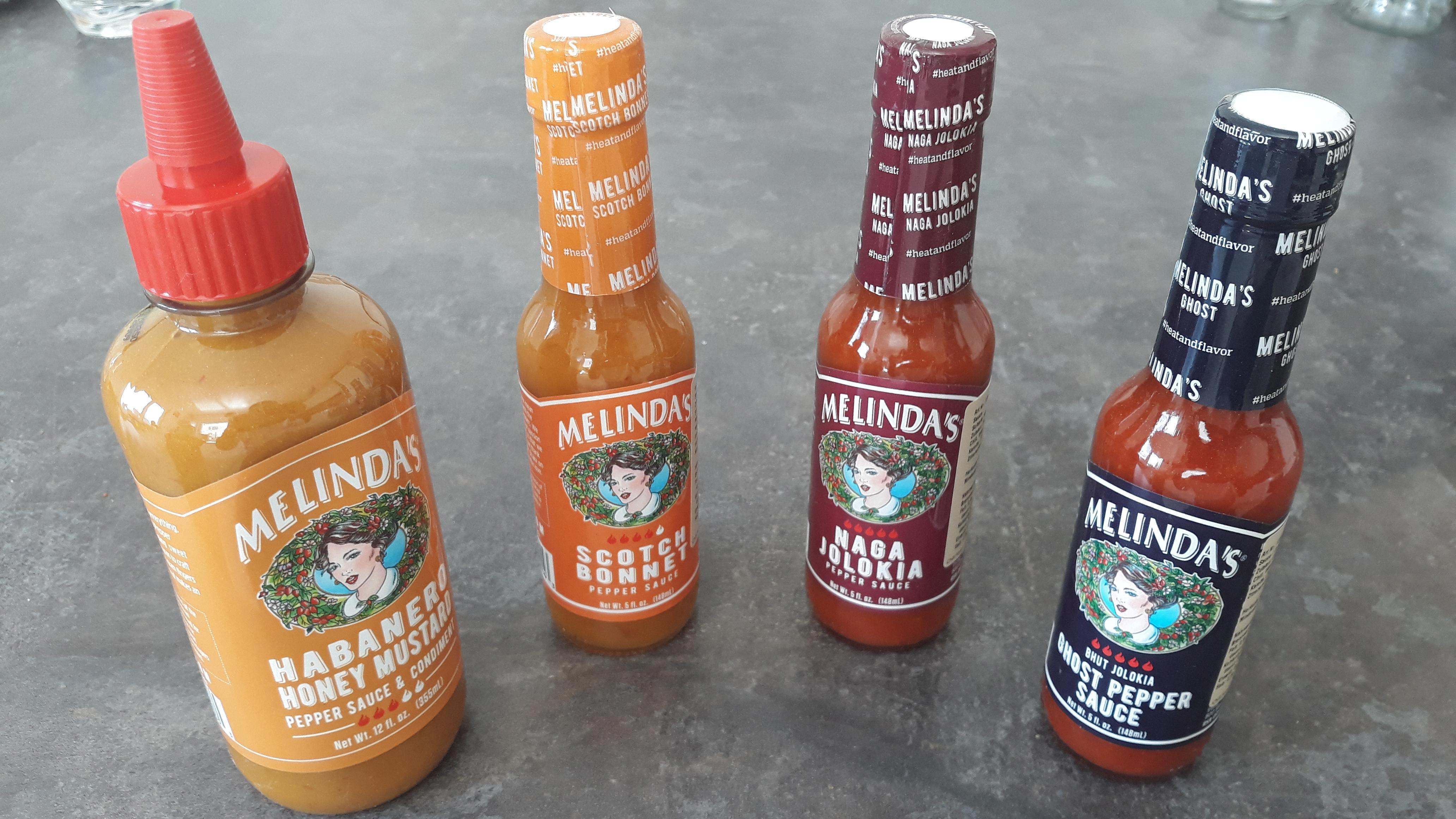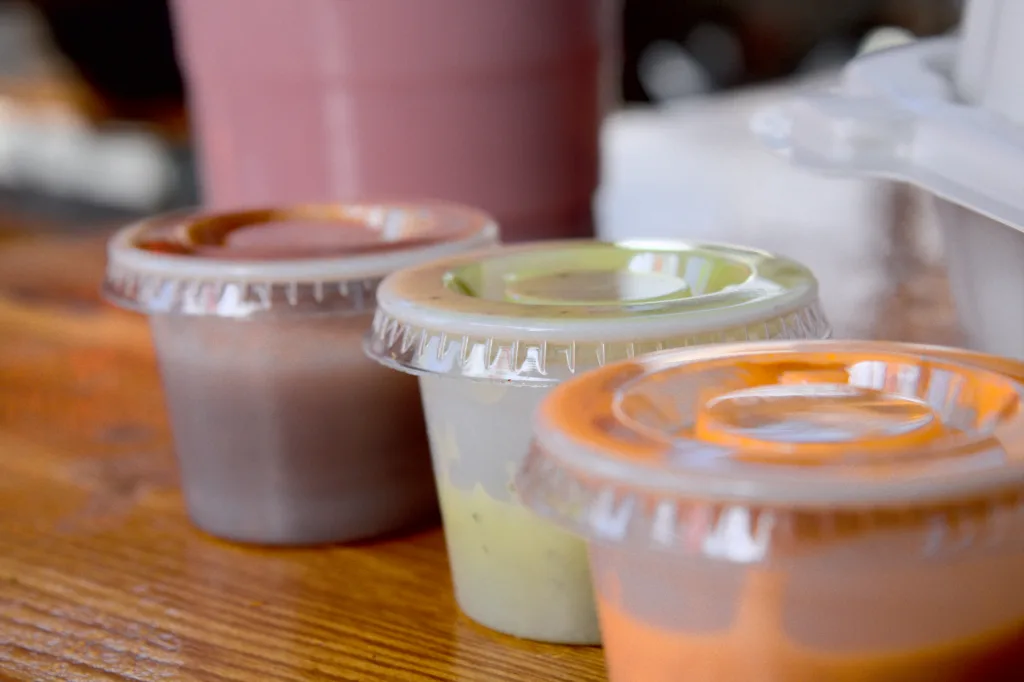Sauce is an essential component of many dishes, adding flavor and moisture to meals. However, it is important to store sauce properly to ensure it remains safe for consumption and retains its flavor.
Firstly, it is vital to check the label on store-bought sauces for any specific storage instructions. Generally, sauces should be kept in a cool, dry place until opened. Once opened, the sauce should be refrigerated and consumed within 3-5 days. It is important to ensure the lid is tightly sealed to avoid contamination from bacteria and other microorganisms.
Homemade sauces should also be stored correctly to ensure their longevity. It is advisable to store homemade sauces in airtight containers in the refrigerator, ensuring they are consumed within 3-5 days. Alternatively, they can be frozen for up to three months. It is important to label and date the container to ensure that it is used within the recommended timeframe.
When reheating sauce, it is important to ensure that it reaches a temperature of at last 165°F to kill off any bacteria that may have grown. Additionally, it is important to avoid reheating sauce multiple times, as this increases the risk of bacterial growth.
It is important to note that some sauces, such as those containing vinegar, have a longer shelf life due to their acidity. These sauces can be stored in a cool, dry place until opened, and then refrigerated and consumed within the recommended timeframe.
Proper storage of sauce is crucial to ensure its safety and longevity. Always check the label for specific storage instructions, and ensure homemade sauces are stored in airtight containers in the refrigerator or freezer. When reheating sauce, ensure it reaches a temperature of at least 165°F, and avoid reheating multiple times. By following these guidelines, you can enjoy delicious and safe sauces for all your meals.
Storing Cold Sauces
Cold sauces are an essential part of many meals, adding flavor and texture to a variety of dishes. However, it is important to store them correctly to ensure their safety and quality. Here are some tips for storing cold sauces:
1. Refrigerate after opening: Most cold sauces, including chutneys, horseradish, chimichurri, pesto, mayonnaise, aioli, remoulade, tartar sauce, jams, jellies, relishes, and the ginger and wasabi that come with sushi, should be refrigerated after opening. This helps to prevent the growth of bacteria and maintain their freshness.
2. Use airtight containers: When storing cold sauces, use airtight containers to prevent air and moisture from getting in. This can help to prevent spoilage and maintain the quality of the sauce.
3. Label and date: It is important to label and date your cold sauces when storing them. This can help you to keep track of when they were opened and when they need to be used by. Additionally, it can help to prevent confusion and ensure that you are usng the correct sauce for your recipe.
4. Keep them away from raw meat: When storing cold sauces, it is important to keep them away from raw meat in the refrigerator. This can help to prevent cross-contamination and the spread of bacteria.
By following these tips, you can store your cold sauces safely and maintain their quality and freshness for longer periods of time.

Source: reddit.com
Should Sauce Be Refrigerated?
Sauce is a common ingredient used in many recipes, such as pasta, pizza, and meat dishes. However, the question of whether or not sauce should be refrigerated can be confusing for some people. In general, the answer depends on the type of sauce and whether it is homemade or store-bought.
Store-bought sauces, such as tomato sauce, marinara, and Alfredo sauce, are usually shelf-stable and can be stored in your cupboard unil you open them. Once opened, however, it is best to keep them in your refrigerator to prevent spoilage. This is because the combination of air and moisture in the jar can cause bacteria to grow, which can lead to foodborne illness. It is important to note that you should always follow the storage instructions on the label to ensure the sauce stays fresh for as long as possible.
On the other hand, homemade sauce should always be refrigerated. The reason for this is that homemade sauces typically contain fresh ingredients, such as tomatoes, garlic, and onions, all of which can spoil quickly if left at room temperature. Additionally, homemade sauces often lack the preservatives found in store-bought sauces, which means they are more susceptible to bacterial growth. To keep your homemade sauce fresh, store it in a sealable plastic bag, such as a Glad® FLEX’N SEAL™ Gallon Bag, and refrigerate it promptly after making it.
Whether or not sauce should be refrigerated depends on the type of sauce and whether it is homemade or store-bought. Store-bought sauces can be kept in your cupboard until opened, but should be refrigerated once opened. Homemade sauces should always be refrigerated to prevent spoilage.
Storing Sauce: How Long Can It Last?
Sauces are a common ingredient in many dishes, adding flavor and texture to the meal. However, once you open a jar of sauce, you might wonder how long it can be stored. The answer to this question can vary depending on the type of sauce and the storage conditions. Here’s what you need to know aout the storage of sauces:
1. Tomato-based sauces: If you have opened a jar of tomato-based sauce, it can be stored in the refrigerator for 3-5 days. However, if you are not planning to use it within this time frame, you can freeze the sauce for up to 3 months. Make sure to transfer the sauce to a freezer-safe container before freezing.
2. Cream-based sauces: Cream-based sauces, such as Alfredo sauce, should be consumed within 2-3 days of opening the jar. These sauces do not freeze well, so it is best to avoid freezing them.
3. Pesto sauce: Pesto sauce can be stored in the refrigerator for up to 1 week after opening the jar. You can also freeze the remaining sauce for up to 6 months.
4. Barbecue sauce: Once you have opened a bottle of barbecue sauce, it can be stored in the refrigerator for up to 4 months. However, if you notice any signs of mold or a strange smell, it’s best to discard the sauce.
5. Hot sauce: Hot sauce can be stored in the refrigerator for up to 3 years. However, the flavor and spiciness may decrease over time.
It’s important to note that the storage guidelines mentioned above are general recommendations. Always check the label of the sauce for specific storage instructions. Additionally, if you notice any signs of spoilage, such as mold or a strange odor, it’s best to discard the sauce to avoid any health risks.
Preserving Sauce
Preserving sauce is a great way to ensure that you have a ready-to-use condiment on hand whenever you need it. Here are some steps to help you preserve your sauce:
1. Sterilize your jars: Before you start making your sauce, sterilize your jars by washing them in hot, soapy water and then rinsing them in boiling water. This will help kill any bacteria that could spoil your sauce.
2. Make your sauce: Once you have sterilized your jars, it’s time to start making your sauce. Use fresh ingredients and follow a recipe that includes vinegar, as this will help preserve the sauce.
3. Cook your sauce: After you have made your sauce, it’s important to cook it for at least 20 minutes. This will help kill any bacteria that may be present in the sauce.
4. Fill your jars: Once your sauce has cooled down, it’s time to fill your jars. Make sure you leave about half an inch of headspace at the top of the jar.
5. Seal your jars: After you have filled your jars, it’s time to seal them. Place the lids on the jars and tighten them. You can also use a canning tool to ensure a tight seal.
6. Store your jars: you can store your jars in a cool, shady place. Make sure the jars are stored upright and away from direct sunlight. Properly stored, your sauce sould have a shelf-life of up to six months.
To preserve your sauce, you need to sterilize your jars, make your sauce with fresh ingredients and vinegar, cook your sauce for at least 20 minutes, fill your jars, seal them, and store them in a cool and shady place. Following these steps will ensure that your sauce stays fresh and ready to use for months to come.

Conclusion
The proper handling and storage of sauce is crucial in maintaining its quality and safety for consumption. Whether it’s store-bought or homemade, it should be refrigerated after opening and consumed within 3-5 days. Homemade sauce should be cooked for at least 20 minutes and stored in an airtight container to prolong its shelf-life. Additionally, sauces with a vinegar content of at least 20% are generally safe for preserving. Remember to always check for spoilage signs such as mold or off odors before consuming any sauce. By following these guidelines, you can ensure that your sauces remain delicious and safe to eat.
